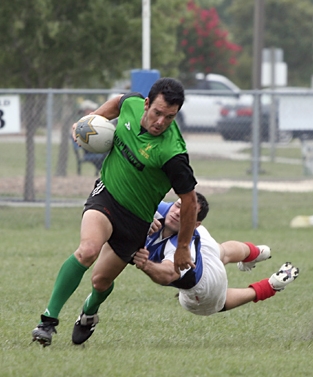Rugby is a sport that involves a lot of physical contact, aggression, and intensity. Players often clash with each other, break the rules, and challenge the referee’s decisions. You might expect the referees to respond with harsh words, stern warnings, or even red cards. But some rugby referees have a different approach: they use polite and respectful language to address the players who commit fouls or infringements. They say things like “I’m not mad, I’m just really disappointed!” or “Please, sir, can you stop doing that?” or “Thank you for your cooperation.”
Why do they do that? And does it work? In this article, we will explore the unique communication style of rugby referees, and how they use it to manage the game, maintain their authority, and prevent further incidents.
The importance and components of effective communication
Communication is a vital skill for any referee, regardless of the sport. According to the MidSouth Rugby Referee Society, effective communication can help referees to:
– Establish rapport and trust with the players, coaches, and spectators
– Explain the rules and their interpretations clearly and consistently
– Prevent or reduce conflicts and disputes
– Control the tempo and mood of the game
– Enhance their credibility and professionalism
The society also identifies four components of effective communication: verbal, non-verbal, listening, and feedback. Verbal communication refers to the words and tone that the referee uses to convey their message. Non-verbal communication refers to the body language, gestures, and facial expressions that the referee uses to reinforce their message. Listening refers to the ability of the referee to pay attention to what the players, coaches, and spectators are saying, and to understand their perspectives and emotions. Feedback refers to the ability of the referee to acknowledge, respond, and act on the information that they receive from others.

The concept of ‘preventive instruction’
One of the communication tools that rugby referees use to guide players to avoid infringements during live play is called ‘preventive instruction’. This is when the referee gives short and clear commands or warnings to the players, such as “Stay onside!”, “Release the ball!”, or “No hands in the ruck!”. These instructions are intended to prevent the players from breaking the rules, and to avoid having to stop the game and award a penalty.
According to Dr. Tomás Ryan, a lecturer in sports psychology at the Institute of Technology Tralee, preventive instruction can benefit both the referee and the players. For the referee, it can help them to:
– Demonstrate their knowledge and awareness of the game situation
– Show their consistency and fairness in applying the rules
– Reduce the number of penalties and interruptions
– Maintain their authority and respect
– Build rapport and trust with the players
For the players, it can help them to:
– Understand the referee’s expectations and interpretations of the rules
– Adjust their behavior and tactics accordingly
– Avoid unnecessary penalties and sanctions
– Play with more confidence and freedom
– Appreciate the referee’s assistance and guidance
However, preventive instruction also has some challenges and limitations. For example, the referee has to be careful not to overuse it, as it might become annoying or distracting for the players, or interfere with their decision-making. The referee also has to be careful not to contradict themselves, as it might confuse or frustrate the players, or undermine their credibility. The referee also has to be aware of the cultural and linguistic differences among the players, as some words or phrases might have different meanings or connotations in different contexts.
Rugby referees have a difficult and demanding job, but they also have a unique and fascinating way of communicating with the players, coaches, and spectators. They use a combination of verbal, non-verbal, listening, and feedback skills, as well as preventive instruction, humor, and creativity, to manage the game, maintain their authority, and prevent further incidents. They also show their personality and style through their choice of words and tone. They are not mad, they are just really disappointed!
Related posts:
Effective Referee-player Communication – MIDSOUTH RUGBY REFEREE SOCIETY
Rugby referees and the art of effective communication – RTÉ
Match officials – World Rugby





